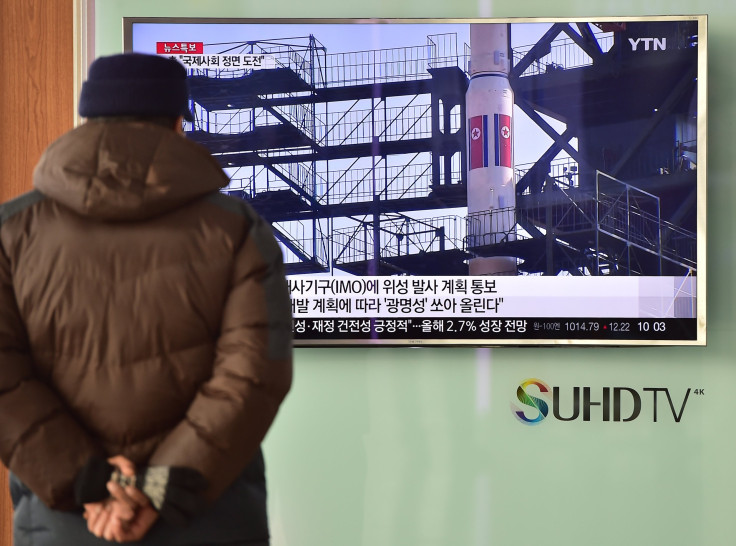China ‘Unable To Stop’ North Korea’s Rocket Launch Plan, Japan Ready To Destroy Missile If It Threatens Its Territory

UPDATE: 5:30 a.m. EST — China urged international powers Wednesday to show restraint over North Korea’s plans to launch a rocket into space between Feb. 6 and Feb. 25.
"We hope all sides show restraint and take prudent action to avoid any moves that may increase the tensions on the (Korean) Peninsula," China’s foreign ministry spokesman Lu Kang said, according to the Associated Press.
"China will engage in contact and coordination with each related side, and play a constructive role in maintaining the peace and stability of the peninsula and this region," he added.
Original story:
Japan's defense ministry announced Wednesday that it would shoot down North Korea’s missile if it is fired over its territory. Japan's decision to put its military on heightened alert comes on the heels of the reclusive East Asian nation’s plans to launch a space rocket between Feb. 8 and Feb. 25.
Japanese Defense Minister Gen Nakatani issued the order, citing the "possibility that North Korea will launch a missile it calls a 'satellite' within coming days," the ministry said in a statement, according to Agence France-Presse. Tokyo’s ballistic missile defense system, which includes PAC-3 surface-to-air anti-ballistic missiles and similar SM-3 systems aboard warships, will execute the order, the ministry said. The order will remain effective until Feb. 25.
Meanwhile, China expressed “serious concern” over North Korea’s planned rocket launch and called on the country to exercise restraint. China's foreign ministry spokesman Lu Kang, however, also said that Beijing would be "unable to stop" Pyongyang if it "insists" on going ahead with its plans, South Korea's Yonhap News Agency reported.
On Tuesday, Kim Jong Un-led North Korea notified the United Nations’ International Maritime Organization — the agency responsible for navigation safety — that it is planning to launch a long-range rocket to put a satellite into orbit, the New York Times reported. IMO spokeswoman, Natasha Brown, said Pyongyang’s notification described the space rocket as an Earth observation satellite it called Kwangmyongsong, which translates as Lodestar, according to the Times. The notification added that if the launch is carried out as planned, the rocket’s first stage will fall in waters off the west coast of South Korea, and the second stage in waters east of the Philippines.
The United States and its allies have advised North Korea against the launch fearing such a move would be a disguise for developing an intercontinental ballistic missile that can deliver a nuclear bomb. Kim’s country claimed in January that it successfully tested its first hydrogen bomb.
A successful launch would increase tensions in Washington that North Korea could soon target the U.S. mainland with a nuclear strike, the Financial Times reported. According to the report, senior U.S. officials believe that Pyongyang is already able to make small warheads to use with an intercontinental missile, and experts also think that the hydrogen bomb test may have put to use a “boosted” device more powerful compared to those previously tested.
© Copyright IBTimes 2025. All rights reserved.






















